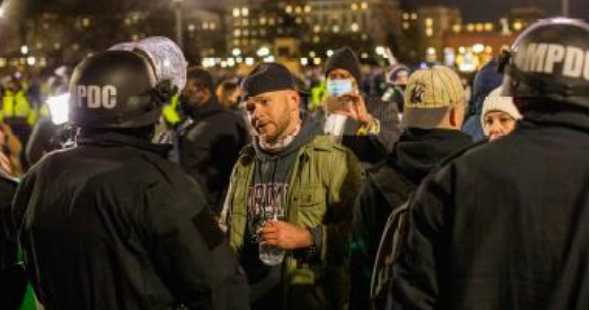Biden, fresh off Electoral College win, accuses Trump of "unprecedented assault on democracy"
President-elect Joe Biden accused President Trump of an "unprecedented assault on democracy" in a speech Monday night hours after the Electoral College formalized his victory. Mr. Trump has refused to concede the election and has tried repeatedly to use the courts to challenge the results without success.
Mr. Biden, speaking in Wilmington, Delaware, ran through some of Mr. Trump's legal challenges, and said "they were found to be without merit" every time.
"Every single avenue was made available for President Trump to contest the results," Mr. Biden said. "He took full advantage of each and every one of those avenues. President Trump was denied no course of action he wanted to take."
He also highlighted Mr. Trump's insistence that he won in a "landslide" in 2016 with 306 electoral votes, the same number Mr. Biden won in 2020.
"At the time, President Trump called the Electoral College tally a landslide," Mr. Biden said. "By his own standards, these numbers represented a clear victory then. And I respectfully suggest they do so now." Mr. Trump won 232 electoral votes.
At times, Mr. Biden tried to take a more unifying tone, repeating his campaign promise to be a president for "all Americans" and saying he will work just as hard for those who didn't vote for me as those of you who did."
"We're a great nation, we're good people, we may come from different places and have different beliefs but we share a common love for this country and a belief in the limitless in the United States of America," Mr. Biden said.
Mr. Biden also praised local election workers, saying they "we owe these public servants a debt of gratitude" for working through the coronavirus pandemic and through threats of violence.
The 538 members of the Electoral College convened Monday at state capitals from coast to coast, where they cast paper ballots individually for president and vice president. While the vote typically takes place without much fanfare, this year's meeting was thrust into the spotlight as Mr. Trump tried to pressure state Republican lawmakers to subvert the will of voters and name their own electors. This gambit, too, failed.
A long-shot lawsuit from Texas filed with the Supreme Court against four key states attempted to extend Monday's deadline for the Electoral College to meet and block electors from those states from voting. But the high court rejected the bid, backed by Mr. Trump, on Friday.
As of Monday afternoon, electors in six battleground states where the president challenged the election results and alleged fraud — Pennsylvania, Michigan, Wisconsin, Georgia, Arizona and Nevada — all cast their ballots for Mr. Biden.
Federal law dictates that presidential electors "shall meet and give their votes on the first Monday after the second Wednesday in December," which this year was December 14. Each state's votes took place at varying times throughout the day, beginning at 10 a.m. ET and ending with Hawaii at 7 p.m. ET.
Congress will count the votes of the electors on January 6.





